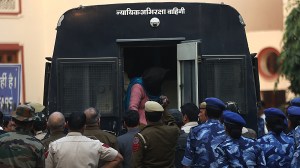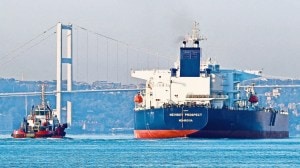N-Deal: ‘Wait till new US regime assumes office’
After asking govt to put on hold N-deal for 6 months, CPM hinted that it wants it to wait further.

After asking the UPA government to put on hold the Indo-US nuclear deal for six months, CPM hinted that it wants New Delhi to wait even further — till the new administration assumes office in the US in 16 months.
“We say that new President, new administration, new dispensation that comes in the US, let’s see what their attitude is (towards the deal). What’s the great hurry?” CPM Politburo member Sitaram Yechury asked at a seminar on ‘Indo-US Nuclear Agreement’.
Yechury said while opinion polls in the US showed George W Bush as the ‘most hated’ President in the recent memory, for Prime Minister Manmohan Singh, he (Bush) is the ‘best President’.
According to him, the government itself has said that it would take a minimum of one decade before the nuclear power generation would start as a result of the deal.
“If that’s the case, why are you (government) rushing through it,” he asked at the seminar, organised by Bangalore unit of ‘People for India Forum’.
Yechury said if the government believes that ‘delay’ means the deal ‘cannot be done through’, it should raise the same ‘slogan’ that it maintained during WTO negotiations – ‘no deal is better than a bad deal’.
CPM general secretary Prakash Karat last week had asked the UPA government to refrain from taking any step for the next six months to operationalise the deal.
“The deal has to be stopped by all of us,” Yechury said adding, the Left parties would ‘finally’ tell the UPA government to choose between the ‘interest and opinion’ of the Indian people and ‘promises’ it made to Bush.
Yechury said Bush is trying to pressurise India on the deal because he wants to show it to American people that he has revived the nuclear reactor industry in the US, which had remained idle for the last three decades.
“And for that revival, he is showing urgency and putting pressure,” he said.
According to Yechury, while it would cost Rs 3,30,000 crore to produce 30,000 MW of nuclear power, the same capacity can be added using hydro and coal resources in the region for Rs 90,000 crore – Rs 1,20,000 crore.
“At this cost, is it worth it? Why do you need nuclear energy when other options are available?,” he asked.
Washington is pushing for the deal partly because it does not want India to pursue production of nuclear power with thorium as fuel. As much as 70 per cent of the world’s known thorium resources are in India, he said.



- 01
- 02
- 03
- 04
- 05




























